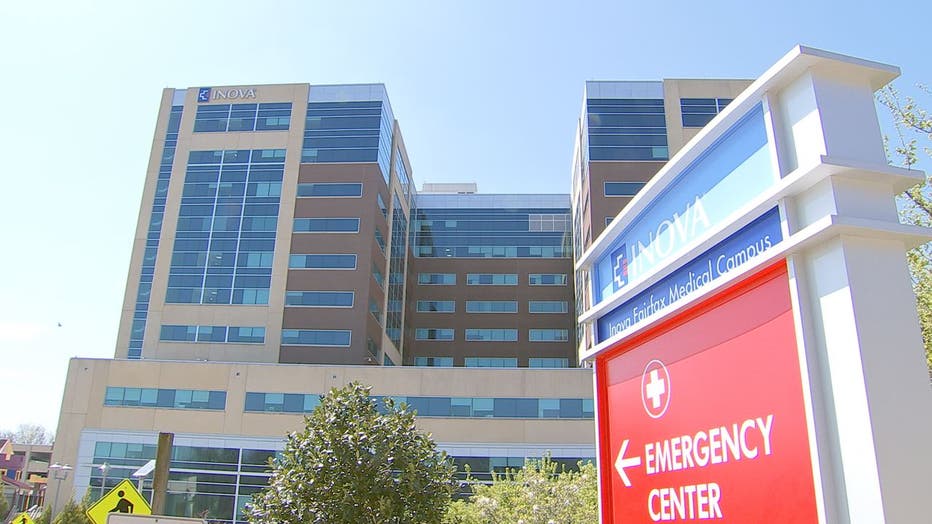New security measures in place at Virginia emergency rooms as violence against staff rises
FAIRFAX COUNTY, Va. - FOX 5 is taking a closer look at something that has become a growing problem over the past few years: verbal and physical abuse of emergency room staff.
In a survey by the American College of Emergency Physicians, 85% of doctors said they think violence has gotten worse in the last five years, with two-thirds saying they’ve been a victim.
Now in Virginia, there’s a law on the books relating to all this. The legislation, which went into effect in July, updates existing Virginia code and requires every emergency department to have round-the-clock guards and a security assessment and risk plan.
FOX 5 visited INOVA, which started doing more to protect doctors, nurses and staff back in 2018 but as incidents of patients or their family members becoming verbally or physically abusive are rising, there are wider concerns.
At INOVA Fairfax, around 650 incidents were reported in 2021. In 2022, that number jumped to nearly 1,000.
"I think they do come in the worst moments of their lives, most people do not choose to come and seek care in an emergency department," said Jill Tunstall-Murphy, the Emergency Medicine Clinical Director at INOVA Fairfax. "Tensions are high and we do our best, and ultimately, we provide the best care that we possibly can every time but we have seen an increase in workplace violence."
That increase has some nurses and doctors thinking about leaving the field entirely, INOVA Emergency Medicine Division Chief Dr. Tanveer Gaibi says.
"You’re working and you want to do your best and a patient now swings at you, assaults you and when you go home, it’s traumatic. The next time a patient moves in a different way, you may think you’re going to be assaulted again but we’ve had nurses and doctors leave healthcare because they’re just scared," Gaibi said.
"They’re scared for their families, they’re scared for their significant others, or their families don’t want them to come back to work, and are encouraging them to find other jobs. So be there for us, so we can be there for you," Gaibi added.

INOVA started going through security procedures with a fine-tooth comb in 2018, studying ways to make the buildings safer. They started implementing some of those changes earlier this year, including telling staff to report issues, giving staff who want to file police reports time to go to court to testify and standing by zero-tolerance policies.
"We’ve encouraged reporting and we’re also encouraging reporting on racial slurs, on verbal abuse of any kind. People were not naturally reporting that a few years ago but we felt like we really needed to know the whole picture," said Toni Ardavell, Chief of Operations for Clinical Enterprise.
Then there’s the physical security.
They installed a weapons detector called Evolv. It’s not a full-blown metal detector but uses AI to determine if there’s metal on a person when they walk in and if there is, the software tells security where, then a red box pops up and the person has to check in with security.
Every INOVA emergency department has armed security as well.
Brian Walker is the hospital’s Head of Public Safety.
"We teach our officers that people come to a hospital because their life has been disrupted, and when you’re in a society when tensions are high anyway, that now increases it to the tenth power. So we as security professionals have to be prepared to be that calm in the storm," Walker said.
FOX 5 is also told there are yearly trainings on de-escalation and despite the number of reported incidents up, the worker's compensation payments to staff are down, which implies that de-escalation is working and the physical abuse may be lessening.
"Implementing measures now to support people as they press charges on someone because it was hard to get nurses, people who are dedicated to caring for people. It was hard to get them to understand that being kicked, punched, scratched and spat upon is not part and parcel of their job," Walker said.
INOVA also holds town halls regularly with staff as part of their continued efforts to improve safety.

